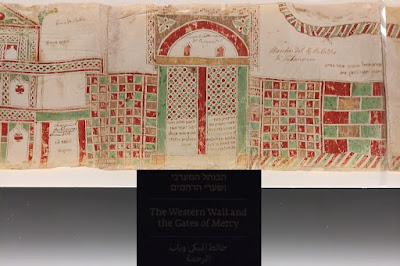Originally published at the +972 site (and republished by the PLO's Department of Culture and Information which found it worthy), Shaul Magid's review of Mikhael Manekin's “The Dawn of Redemption: Ethics and Tradition in a Time of Power” provides insight not only into a leader of the "Breaking the Silence" group but for purposes of this blogpost, Maggid himself.
Manekin, a Jerusalemite, attended the Maaleh Gilboa Yeshiva, was diretor of "Breaking the Silence", then of Avrum Burg's "Molad" institute and now the "Nationalism and Partnership" group linked to the NGO "Cooperation for the Future" or The Alliance, as well as the joint Arab-Israel Van Leer Institute section. The raison d'etre is a
"striving for a formulation of a shared political syntax; a toolbox that includes a bridging narrative; formulas for political and ethical justification; and social, cultural, and political frameworks. All of these aspects will join into a subset that can be called 'binational interventional politics'...The moral demand of the group’s members is an increase in equality and civil and national justice and the development of a political tradition of respectful national partnership".
Note the "binational".
A bit more of how Magid sees the book:
“The Dawn of Redemption” reflects on the power, abuses, and failure of religious Zionism as an institution of power in Israel today...the brutality of Israel’s ribonut...a new monstrous “national religious Jew” has been created...theological chauvinism and secular violence, messianism enacted through subjugation. In short, unadulterated ribonut.
Now that we are clear as to the book itself, I want to point something out regarding Magid. He recalls a 1953 incident so:
the infamous October 1953 massacre in the West Bank village of Qibya, which was then occupied by Jordan. On orders from above, a group of Israeli soldiers led by Ariel Sharon slaughtered at least 69 Palestinian civilians in the village, the majority of them women and children.
The repraisal raid on Qibya did indeed occur and it happened on October 14. It was led by Sharon. "Slaughtered", however, is not the correct term. The assault details are quite well known:
IDF soldiers encountered resistance from soldiers and village guards, and in the gunbattle that followed, 10–12 soldiers and guards defending the village were killed and an Israeli soldier was lightly wounded. The soldiers did not thoroughly inspect the homes in the village for the presence of residents, and when military engineers dynamited dozens of buildings across the village, scores of civilians were killed.
This, to be fair, was a basic repeat of the Palmah operation in February 1948 at Sasa*.
But the review was tampered with by the PLO.
After the words: "the majority of them women and children,"
they insert:
"who were coming home from their fields after transgressing a curfew that they didn’t even know existed"
Screen shot:
That, of course, is another unfortunate incident, from the 1956 Sinai Campaign.
Now, ask yourselves, why would the PLO do that?
Are they not knowledgeable?
Do they presume their audience is not knowledgeable?
Will Magid complain?
Will +972?
______
*
On February 15, 1948, a Palmach unit entered the village during the night and, without resistance, planted explosives against some of the houses. It was reported at the time that ten or more houses were totally or partially destroyed and 11 villagers were killed (5 of them small children). According to the official history of the Haganah, the village had been used as a base for Arab fighters...According to Benvenisti (who gives the date of the attack as 14 February), the Palmach units that raided Sa'sa' killed 60 people and demolished 16 houses.
^

















